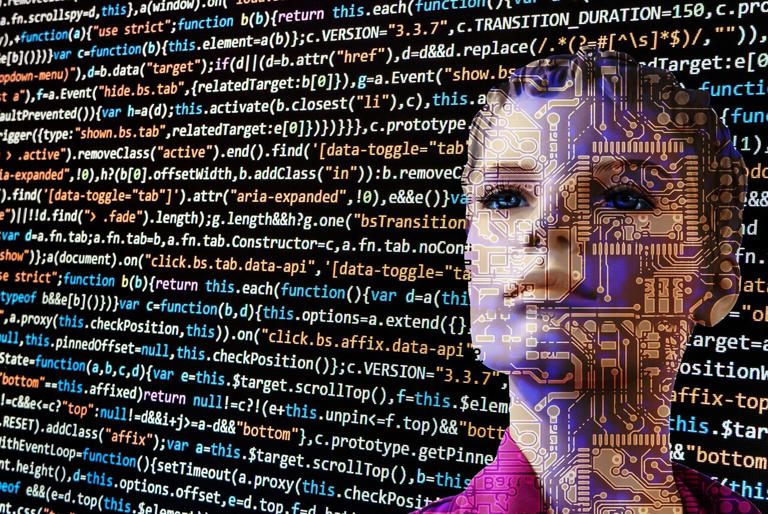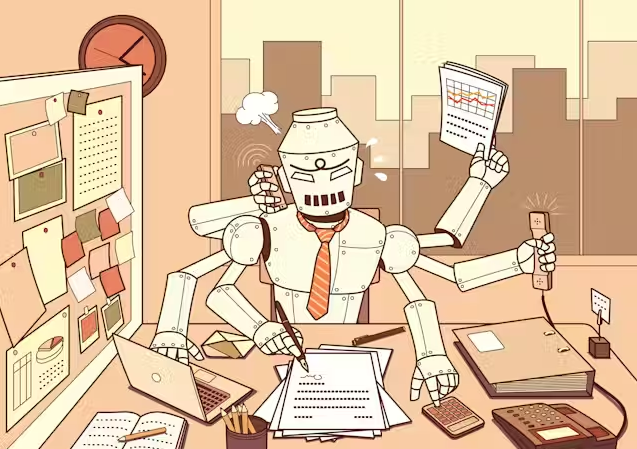Interacting with AI chatbots like ChatGPT can be amusing and sometimes practical, but a new frontier is emerging in the world of artificial intelligence: AI agents. These advanced tools go beyond answering questions and step into the realm of taking actions on your behalf. Imagine an AI not just providing suggestions but also booking your flight, organizing your work calendar, or even planning your next meal. This isn’t a distant dream; it’s happening now.
Let’s explore how AI agents work, their potential, and the risks they bring as they edge closer to becoming indispensable tools in our daily lives.
What Are AI Agents?
As Brian O’Neill, Associate Professor of Computer Science at Quinnipiac University, defines them: AI agents are technological tools designed to learn about their environment and solve problems or perform specific tasks with minimal human input. In simple terms, they are like a digital assistant that doesn’t just answer questions but takes meaningful actions to achieve goals.
Think of it this way: you’re an agent in your own life, responding to your environment and making decisions. AI agents do the same but in a digital landscape.

How AI Agents Work
AI agents come in different forms, each tailored for specific tasks.
1. Simple Reflex Agents
These agents act based on immediate perceptions. A smart thermostat, for instance, senses the room temperature and adjusts the heat accordingly. It doesn’t consider your preferences or the time of day—just the here and now.
2. Goal-Based Agents
More advanced than reflex agents, these focus on achieving specific objectives. A robot vacuum like a Roomba learns the layout of your home, evaluates how dirty the floor is, and methodically cleans until the job is done.
3. Utility-Based Agents
These agents take things further by weighing risks and benefits to decide the best course of action. They prioritize conflicting goals, factoring in user preferences to make decisions. For example, Google’s Project Mariner, a browser extension, can plan a meal by adding grocery items to your cart and even finding substitutes for unavailable ingredients.
Why AI Agents Are the Next Big Thing
Major players like OpenAI, Microsoft, and Google are investing heavily in AI agents, claiming they will revolutionize industries such as healthcare, gaming, and robotics. Unlike chatbots, which are limited to text-based interactions, AI agents can act autonomously.
For instance, OpenAI envisions agents capable of running independently for days, tackling complex tasks without human supervision. This leap from narrow AI (specialized in one task) to artificial general intelligence (AGI) hints at a future where machines can outperform humans in diverse areas.
Germany and France in Crisis: Is the Next Global Financial Crash Brewing?
The Promise and Pitfalls of AI Agents
While AI agents promise convenience and efficiency, their adoption depends on overcoming certain challenges:
1. Data Privacy Risks
AI agents require access to sensitive data like your email, calendar, and browser history to function effectively. This raises concerns about security and privacy. What happens if an agent’s system is hacked?
2. Decision-Making Errors
AI agents aren’t infallible. They can make choices users disagree with or fail to navigate unexpected obstacles. To mitigate this, companies like Google are keeping humans “in the loop.” For example, Project Mariner lets users approve purchases or terms of service agreements before finalizing.
3. Bias and Fairness
AI agents are not immune to biases, often inherited from their training data. These biases can influence decisions, sometimes leading to undesirable outcomes. Regular human oversight is essential to catch and correct such issues.
The Future of AI Agents
The trajectory of AI agents will depend on two factors:
- Performance – Can these tools handle complex, unpredictable tasks?
- Trust – Are users willing to share enough data and rely on them for critical decisions?
Despite the risks, the potential upside is hard to ignore. Imagine an AI agent running your business’s backend operations, leaving you free to focus on innovation. Or a personal assistant that plans your entire day while optimizing your errands.
The Bottom Line
AI agents are not just a technological trend—they’re a paradigm shift. They promise to save time, enhance productivity, and make life simpler. However, with great power comes great responsibility. As these tools become more autonomous, ensuring their safety, fairness, and ethical use will be paramount.
Are you ready to trust an AI agent with your tasks? Or would you rather keep your hands on the wheel for now?

